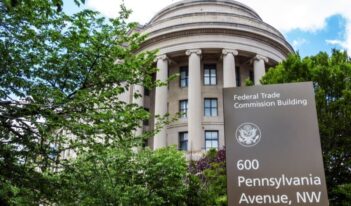
Corporate culture affects how antitrust regulators and judges perceive the actions of corporations.
Microsoft has formally complained to the European Commission (EC) about its rival Google’s monopolistic dominance in the markets for online search and search advertising. According to Microsoft, Google holds a 95% share of the search engine market in Europe and prevents search competitors from accessing content that they need to provide search results to consumers and to attract advertisers. The EC has already been investigating these issues since February, 2010, and Microsoft’s complaint will certainly serve to increase publicity of that investigation.
The investigation will shed light on the corporate DNA—or culture—of Microsoft and Google. Just as human DNA affects who we are as individuals, corporate culture informs everything companies do, including how they interact with antitrust regulators.
Corporate DNA and intent matter in antitrust. Theoretical arguments that they shouldn’t matter—that antitrust should simply promote consumer welfare-enhancing corporate behavior regardless of intent—do not play out in the real world.
For example, in 1998, in the Department of Justice (DOJ) monopolization case against Microsoft, Bill Gates did not help his company’s cause by providing a deposition in which he appeared evasive and uncooperative.
Antitrust regulators on the other side of the Atlantic scrutinized Microsoft’s practices as well. In 2008, the EC fined Microsoft an unprecedented €899 million ($1.3 billion) after investigating Microsoft’s operating system dominance. When issuing the fine, EC Commissioner Neelie Kroes said that “Talk is cheap; flouting the rules is expensive. We don’t want talk and promises – we want compliance. If you flout the rules you will be caught, and it will cost you dear. . . . The Commission’s fine is a reasonable response to a series of quite unreasonable actions.” Clearly, Microsoft had not won friends at the EC.
Microsoft’s decision to lodge a complaint against Google with antitrust regulators may indicate that its battles with them have softened its corporate DNA. After all, Gates founded the Bill & Melinda Gates Foundation in 2000, soon after his bruising antitrust battle with the DOJ.
Unlike Microsoft, Google does not appear to believe it needs to change its approach to regulators. After all, its mantra is “Don’t be evil.” When it went public in 2004, the company wrote to potential investors that its goal—the “unusually important task” of organizing all of the world’s information—could only be entrusted to a company that, like it, was “trustworthy and interested in the public good.”
Yet Google’s real world actions sometimes belie its corporate DNA. For example, in 2002, Google co-founder, and now-CEO, Larry Page had the idea of scanning and uploading all of the world’s books, thereby creating Google Books. He argued that this project would bring millions of out-of-print books back to life, and would fit Google’s DNA. The project was hugely ambitious – perhaps even arrogant. With Google, it is sometimes hard to tell the difference. In 2005, book publishers and authors sued Google for breach of copyright. A consortium known as the Open Book Alliance has opposed any settlement in this case, arguing that Google’s goal is to establish “a sordid financial scheme to restructure the publishing industry and to control web commerce” rather than “to construct a repository of scholarly works that will be used to benefit the public.”
It remains to be seen how the EC will handle Microsoft’s complaint against Google. Will the EC largely ignore the complaint given Microsoft’s track record? Will the EC consider Google’s purported mission to benefit the public?
Of course, every antitrust case turns ultimately on its facts. But credibility matters with regulators and with judges—as does corporate DNA.




